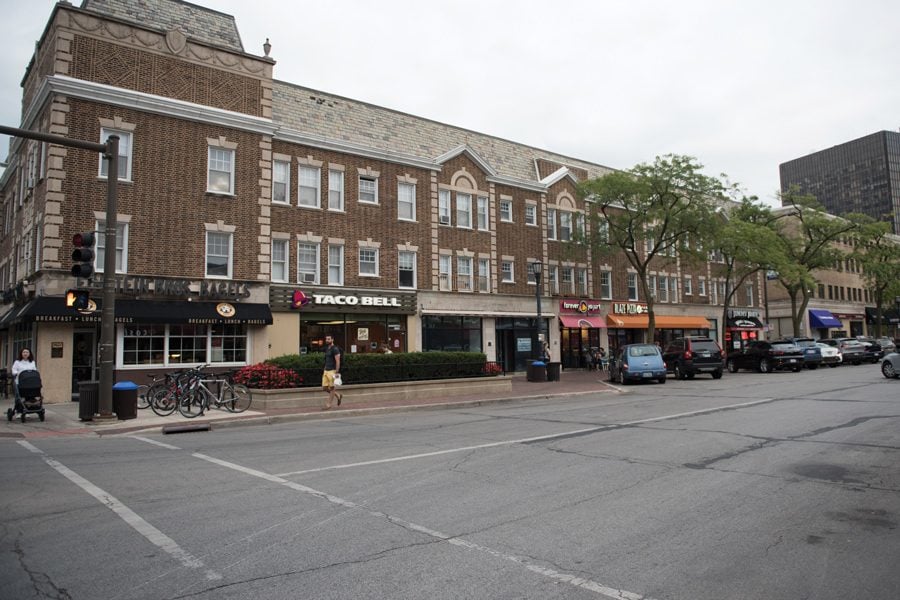Cook County soda tax repeal garners mixed reactions from Evanston restaurants
Katie Pach/Daily Senior Staffer
Evanston businesses express mixed reactions to the Wednesday repeal of the Cook County soda tax. The tax, which was repealed 15-2 by the Cook County Board of Commissioners, lasted just two months in the county.
October 11, 2017
Evanston businesses expressed mixed reactions to the Wednesday repeal of a controversial soda tax that went into effect just two months ago.
The penny-per-ounce tax — narrowly passed by the Cook County Board last November — was repealed 15-2. As a result, soda drinkers and business owners won’t have to pay the tax starting Dec. 1.
Though the soda tax was heavily debated in local governments, some Evanston business owners said its effects were minimal — echoing sentiments from last year when commissioners first enacted the tax.
Evanston Chamber of Commerce executive director Linda Larkin said while some Evanston businesses welcomed the tax for its health benefits, many appreciated the repeal because it gave them “some breathing room” when it came to raising prices.
“The chamber remains neutral on things, but I would say that our people are happy it was repealed,” Larkin said. “We represent the businesses, and the businesses were being charged.”
Union Pizzeria assistant manager Angela Lovell said her restaurant paid more for wholesale soda, but transferred that increase to the customer.
Lovell said most people did not notice the price change, and the consumption habits of those who did stayed the same. So, she said, the tax “never really” affected the pizzeria’s soda sales and its repeal would also likely have no effect.
“It will just make it easier for us to buy the soda,” Lovell said.
Mt. Everest Restaurant manager Vishal Chamling also said the soda tax hadn’t significantly impacted his business, as soda is not popular among his clientele.
Chamling said though he noticed the number of soda sales only drop “a bit,” repealing the tax would help the county’s small businesses that rely on soda sales.
In a Wednesday op-ed in the Chicago Tribune, Cook County Commissioner Larry Suffredin said he voted against the repeal because the tax generated revenue “without gimmicks” and helped fight health problems that stemmed from sugary drinks.
The repeal also erased a law that prevented Cook County tax hikes until after 2020, Suffredin said, without which “all taxes are in play.” He added that the soda tax had only affected “a small number of people.”
But Hecky Powell, who owns Hecky’s Barbeque, said the tax had caused a roughly 20-percent drop in soda sales at the restaurant.
After initially trying to absorb the tax, Powell said he had to raise drink prices to transfer the burden to customers when revenue declined. He said customers often blame restaurant owners, when in reality the price change stemmed from a decision made by the county.
Members of the board “don’t have a clue” about what it takes to run a small business, Powell said. He added that while larger companies may have the resources to address tax hikes, smaller ones often have to lay off workers or raise prices to stay afloat.
“We’re not McDonald’s, we’re not Burger King,” Powell said. “We’re one business that employs 15 people from the neighborhood who couldn’t get jobs elsewhere.”
Without the tax, which was expected to generate $200 million in annual revenue, county officials will have to cut money from next year’s proposed $5.4 billion spending plan. Cook County has until Nov. 30 to approve a budget.
Email: [email protected]
Twitter: @jakeholland97












